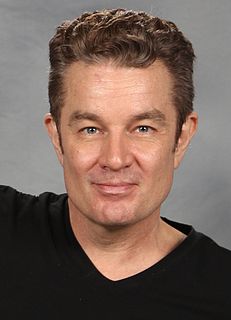A Quote by Aleksandar Hemon
The mind is complicated and you can't trace the roots of its processes, but there is something about mathematical and algorithmic patterns that I like to recognize in things.
Related Quotes
Though the structures and patterns of mathematics reflect the structure of, and resonate in, the human mind every bit as much as do the structures and patterns of music, human beings have developed no mathematical equivalent to a pair of ears. Mathematics can only be "seen" with the "eyes of the mind". It is as if we had no sense of hearing, so that only someone able to sight read music would be able to appreciate its patterns and harmonies.
If you have a weakness for furry slippers or something, you might end up with that kind of advertising. It's a very complicated algorithmic decision. There's no one dude who's deciding what ads are going with things, and it's very individualized also. And that's the idea of collecting information is that in theory, you're showing people things that they should want to see or for which they are a good target. So, no, there's no master person.
Studios are often very nervous of things they don't recognize, by which I mean things that haven't been done before, and therefore, they take a really original idea, and they recognize the originality, and then they try and make it look like something they recognize. So they try to turn it into something far more procedural.
There are only patterns, patterns on top of patterns, patterns that affect other patterns. Patterns hidden by patterns. Patterns within patterns. If you watch close, history does nothing but repeat itself. What we call chaos is just patterns we haven't recognized. What we call random is just patterns we can't decipher. what we can't understand we call nonsense. What we can't read we call gibberish. There is no free will. There are no variables.
The world is like a sheet of paper on which something is typed. The reading and the meaning will vary with the reader, but the paper is the common factor, always present, rarely perceived. When the ribbon is removed, typing leaves no trace on the paper. So is my mind - the impressions keep on coming, but no trace is left.
The internal processes of muscle growth are seriously complicated, people devote their lives to it, but the external processes that kick it off, the things in your control can be distilled down to a few principles: Get stronger in the right rep ranges, eat appropriately, commit to the program and consistently work hard at it.
Mental patterns do not originate out of inorganic nature. They originate out of society, which originates out of inorganic nature. And, as anthropologists know so well, what a mind thinks is as dominated by biological patterns as social patterns are dominated by biological patterns and as biological patterns are dominated by inorganic patterns. There is no direct scientific connection between mind and matter. As the atomic scientist, Niels Bohr, said, "We are suspended in language." Our intellectual description of nature is always culturally derived.
The mental cognitive processes that we're targeting are ones that narrow human beings' repertoire and make it harder for them to learn to be more flexible, to take advantage of the opportunities in front of them. We can have something to help with in areas like child development or organizations and schools, or maybe even how peoples interact with each other, one to the other. We've taken the work into things like prejudice and stigma, because if we can't solve that we have planes flying into buildings. So it applies broadly because anywhere that a human mind goes these processes go.
What I realized is that if we're going to be able to have a theory about what happens in, for example, nature there has to ultimately be some rule by which nature operates. But the issue is does that rule have to correspond to something like a mathematical equation, something that we have sort of created in our human mathematics? And what I realized is that now with our understanding of computation and computer programs and so on, there is actually a much bigger universe of possible rules to describe the natural world than just the mathematical equation kinds of things.





































